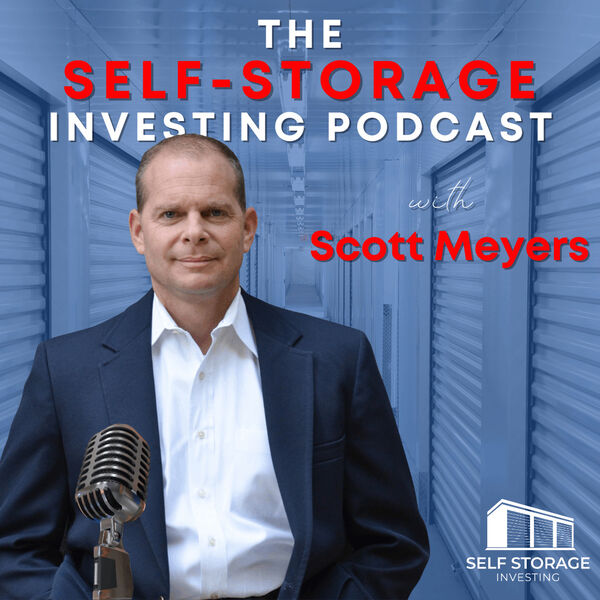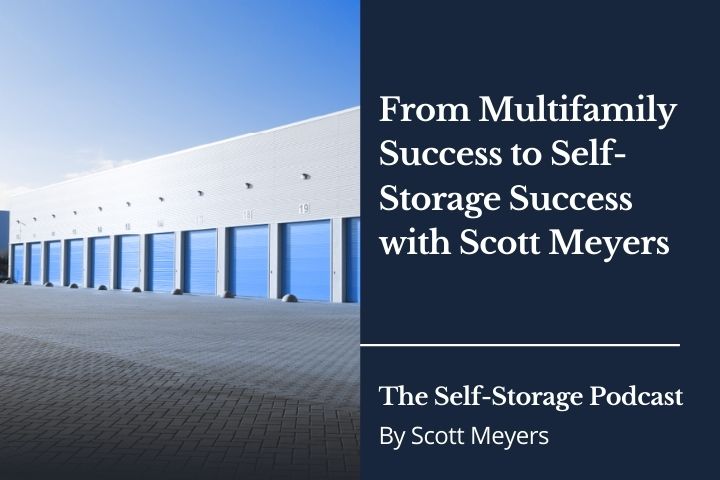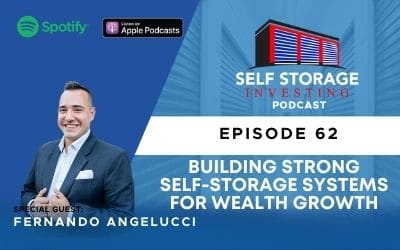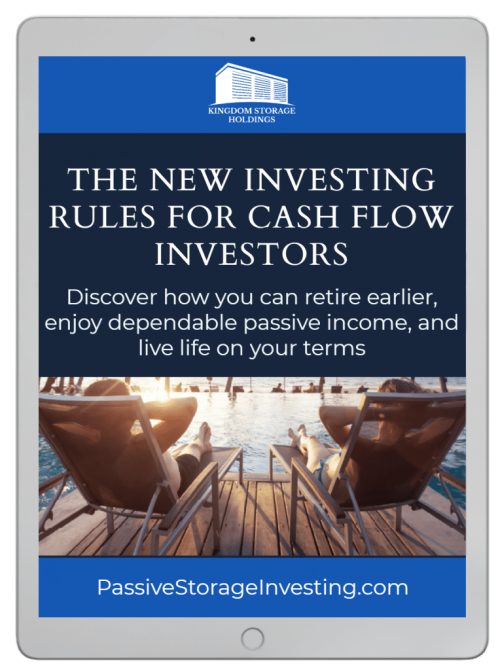You might call Mark Hutchinson an active passive investor. He takes pride in using the Infinite Banking Concept (IBC) to build capital.
IBC involves using specially constructed dividend-paying whole life insurance as a means of building capital and then borrowing whenever interest would be paid to others.
Mark explains the concept is a flexible and self-governed system that allows for investments in a variety of asset classes without restrictions. However, it requires discipline and time to build capital.
WHAT TO LISTEN FOR
5:30 The Infinite Banking Concept
11:56 Flexibility and Control in Financial Management
20:24 Strategic Use of Policy Loans for Investments
29:51 Building Liquidity and Tax Advantages
Leave a positive rating for this podcast with one click
ABOUT MARK HUTCHINSON
Mark is a seasoned investor over the last four decades.
But the global economic crisis 2008 was the last straw for Mark. Like others, he suffered significant losses an realized the importance of finding strategies that could mitigate or remove market risk. That’s when he connected with the Infinite Banking concept.
CONNECT WITH MARK
Website | Email
CONNECT WITH US
Website | You Tube | Facebook | X | LinkedIn | Instagram
Follow so you never miss a NEW episode! Leave us an honest rating and review on Apple or Spotify.
Episode Transcript
Mark Hutchinson (00:00):
It’s the use of specially constructed dividend, paying whole life insurance as a means of building capital and then borrowing whenever you would pay interest to other people.
Announcer (00:23):
This is the Self Storage Podcast where we share the knowledge and skills from the industry’s leading investors, developers, and operators to help you launch and grow your Self storage business. Your host, Scott Meyers, over the past 18 years has acquired, developed, converted and syndicated nearly 5 million square feet of Self storage nationwide with the help of his incredible team at SelfStorageInvesting.com who has helped thousands of people achieve greatness in Self Storage.
Scott Meyers (00:59):
Hello everyone, and welcome back to the Self Storage Podcast. I am your host, Scott Meyers, and we have a very special guest in the house today, Mr. Mark Hutchinson. And Mark is a very avid, active passive investor. So what does that mean? That it means that is he is very active in investing passively and not only self storage, but also a number of different asset classes in a time in which there are many folks that are maybe sitting on the sidelines that are waiting for the roller coaster to hit the bottom before they jump in and then ride to the top. So we’re going to talk about not only that, but also we’ve chatted in the past, we’ve had guests on that have talked about, and we’ve talked about IBC or the Infinite banking concept, what that looks like, how powerful that is, what an investment vehicle that is for passive investors to be able to invest in deals.
(01:46):
But we’ve focused more on the active side in the past as well. And so what I’d like to do now is have you hear from Mark how he has used the Infinite banking concept? Probably better than anybody that I’ve ever seen, and he is investing currently in one of our funds. He’s investing again in other asset classes, other funds. The goal is to not only utilize this incredible strategy, but also to hay while the sun is shining in right now, as other people are rushing out, this is the time that Warren Buffett says that you should be rushing in and Mark is the shining example of that. So without further ado, mark, welcome to the show,
Mark Hutchinson (02:26):
Scott, great to be here and great to be with the Storage Nation.
Scott Meyers (02:30):
Well Mark, so glad that we’re able to have this conversation on camera. We’ve had this off camera and thanks for spending the time today. And so if would you tell your story and your journey better than I do? So give Storage Nation a little bit of background and history as to how you got to the place where you are right now, where many people want to be and that is actively investing passively in storage without taking on all the risks that are involved with doing it on their own dime and on their own credit.
Mark Hutchinson (02:58):
Sure. So I’m an active investor as you have described. I kind of arrived at this point because of 2008 and what occurred in the markets there. So prior to 2008, I had been an equities guy and spent a lot of time buying individual stocks, doing different things, but had been through the classic Black Monday, the Asian financial crisis, the European financial crisis, the.com, and finally arrived at 2008. And that washout really hurt me financially and that was a turning point for me. That’s where I looked at that and just said, I cannot continue down the road that I’m going down by just being exposed to equities. So that led me then to start looking for alternative investments and those investments ranged from syndication. There wasn’t a tremendous amount at that time that I was aware of. So syndication, multifamily, single family international real estate, which I have.
(04:12):
And so I stumbled into a newsletter and it was from a company called Palm Beach and they teased up this idea of income for life. And so I started reading these teases that would come along and they would just drip it on me. And being a financially curious mind, I started reading these and going out and doing my own research. And what I stumbled across was the infinite banking concept. And so it was that point that really turned my life around and I realized that I could participate in syndications and things as an LP, have a lot of juice there where my money could work in multiple places at the same time. And so that really is what charged me in that direction. And then from that point I just decided I had to help other people understand this concept.
Scott Meyers (05:13):
Alright, so the next question is for those folks out there that aren’t familiar with the infinite banking concept or may have heard of it, mark walk through not only what it is, but if you would just tell me how you use it when you started in the beginning and how you’re using it to right now in all practicality.
Mark Hutchinson (05:30):
Okay, so the infinite banking concept, I think if you were just to summarize this in a simplistic manner, it’s the use of specially constructed dividend, paying whole life insurance as a means of building capital and then borrowing whenever you would pay interest to other people. So an example of that would be a car. So instead of going out and financing your car with Ford Motor Credit or GMAC financing, you would have capital inside of your policy and you would take a loan and it’s a loan from the insurance company, but it collateralizes your cash value.
(06:17):
The concept is that you would recapture interest paid to others and pay that to yourself, but yourself is in air quotes because it’s really not paying yourself, you’re building your capital stack. But that’s the traditional thought process behind the infinite banking concept is one of financing and becoming your own bank. I like to think of it as much more than that. It’s very nuanced. There are a lot of layers to it. There are a lot of living benefits that a person can realize when you’re using the infinite banking concept. And that’s really where my focus is. And I was led to using it in the beginning in a very traditional manner and then quickly realized, wait a minute, I can be using this to invest in syndications. I can use my policy’s cash value, take the loans and make investments in the Tri-Corps storage fund and other things like that. So I can do that while my money is building and my cash value continues to build in a variety of ways. So that’s the primary way I started and I mean I can get into a lot more of how I use it today, but that’s the way that I use it.
Scott Meyers (07:39):
So let’s talk about that. So you’ve got an opportunity that you’re looking at right now, let’s just say it is either a syndication or an opportunity to take a position in any fund along with other investors. And so you have an amount of money that you have paid into this policy that you also have the ability to then borrow against. Now is that only against the amount of money that you put in or is it have to do with some amount that the policy itself is worth and then you can go up to a certain percentage of that? What are some of the parameters that we’d be looking at if somebody set up an infinite banking account to be able to then borrow from?
Mark Hutchinson (08:19):
Great question. So the way that the cash value is built inside of the policy, it’s built through premium payments and there are base premium payments and then there are riders that we use what we call paid-up-additions, riders, and that’s how we really want to fund the policy. Our goal is to build the cash value so that the cash value can be collateralized. So when you ask the question, is it just the amount that you have in or what you pay, it is an amount of cash value that has not already been collateralized or pledged in some other deal. I’ll give you an example. You have a hundred thousand dollars of cash value, you’ve purchased a car and you have $45,000 that you have collateralized. So the balance, the 60, let’s say, yeah, 40. So we’ll make it easy, $60,000 that remains in your cash value that’s not collateralized can then be borrowed against and used in some deal.
(09:30):
So it’s important. And my focus is always on my policy to build my capital stack constantly. I am aggressive at it and I don’t want to impact my lifestyle per se, but I aggressively fund my capital stack so that I can then leverage. And what’s interesting is when you have an exit or you have monthly passive income that’s coming in from one of your investments and you repay your loan or any amount of your loan, it’s a dollar for dollar lien release. So that means that if I repay 5,000, I can then recollateralize the 5,000 again. So it becomes a very active process of money
Scott Meyers (10:26):
And that’s the reason why they call it infinite if you continue to pay that back and you are disciplined enough to do so. So is there any limit mark to the type of asset class? Are there stipulations? I know that there’s some other borrowing against say an IRA certainly comes with a whole host of rules and stipulations. You can’t use it for your own investments and it can only be in a partnership many times with siblings, somebody that is directly brother or sister, but not mom and dad or kids. Tell me about the restrictions on the infinite banking concept in terms of the investments that you make and the rules surrounding it.
Mark Hutchinson (11:02):
So there are no restrictions per se, because when you take a loan against your policy, no one is asking you any questions. There’s no loan committees, there’s no one that asks you what you’re using it for. So really you can use that capital for any type of an investment. I invest in oil and gas, in credit, in multifamily, in storage. It’s, there’s no limit to what you can invest in with your policy.
Scott Meyers (11:42):
So do you set up a formal loan and are there attorney’s fees involved? Is there any legal, any closing costs anytime you make an investment or is this all self-governed, if you will?
Mark Hutchinson (11:56):
Great question. It is all self-governed. So when you apply to take a loan, I do it online. So I go right into my account and I can see the balance that is remaining that I can collateralize out of my specific policy that I’m looking at. And then I say, I would like a loan for X dollars that is then processed and within about 24 to 48 hours the money appears in my account. So it’s transferred directly into my checking account. And from there I can invest in whatever it is that I want to invest in no questions asked.
Scott Meyers (12:36):
So similar to a self-directed IRA, if you will, or real estate 401k, which most people here in Storage Nation are familiar with, does the money automatically go back and then if it doesn’t, if you are going to pay yourself, then there is a taxable event on that. Is that safe to say?
Mark Hutchinson (12:53):
So if you’re investing in a syndication and you have taxable income, that’s taxable income. There’s nothing that’s going to be sheltered from the policy, but anything that you repay back into your policy is then going to continue to earn in a tax deferred manner forever, but can be accessed tax-free forever. So once you get money into your banking system, if you will, into your policy, we are then moving into a tax-free world, which is where I prefer to push all of my capital.
Scott Meyers (13:34):
So a little more flexible if you will, than a self-directed IRA or a real estate 401k in terms of being able to sometimes guide at your money, whether it’s money that you want to take off the table, you’ll pay taxes on, but then not a hundred percent would have to go back into the infinite banking account. Is that correct?
Mark Hutchinson (13:53):
That is correct. You are in complete control.
Scott Meyers (13:57):
So Mark, why isn’t everybody doing this and why isn’t everybody aware of it?
Mark Hutchinson (14:01):
I think it’s an education piece. When you look at how insurance is sold in the United States, it’s primarily sold in a very restrictive manner. Insurance agents are taught to sell it a way that the company endorses, and the way that the company endorses is not necessarily infinite banking. They don’t like the word banking because it’s insurance, it’s not banking. And people get confused in the sales process. And so they want to make sure that this is not the way that it is sold as a result, only certain people that are very curious and are out trying to figure these things out, I think are the ones that are discovering it.
(14:55):
My particular practice is built by word of mouth. I have great client base coast to coast, and these people advise friends, family, relatives, other business associates, and I think that’s a very slow way that it’s built. And so I think that’s the primary reason. I think also though, Scott, if you look at in a financial, anyone who’s working with financial advisors, there’s a competition for money, right? Always right? Everybody’s fighting for the dollar. So when you take money out of that world, that world, it’s going to have a little conflict of interest. So they might not suggest that infinite banking makes any sense.
Scott Meyers (15:45):
Yep. Same thing with real estate in general or any alternative investments because they can’t get paid commissions for the most part. And I’m not drawing a blanket comparison or making a blanket statement, but at the end of the day, that’s what they know. It’s where they live in and that’s how they get compensated. So Mark, you mentioned that have clients, there’s people that you work with and obviously I’ve known about this as you’ve invested with us and then also in the same circles that we both run around in. So tell me a little bit about what it is that you do and how you help others.
Mark Hutchinson (16:16):
So what I do is I primarily educate that I feel that my role is to educate people on this concept and how to use the infinite banking concept and the living benefits of the infinite banking concept. When I work with people, it takes time. This is not a get rich quick thing. It takes time to build your capital stack. If you’re fortunate enough to have a lot of capital, it makes it a little bit easier. There are people that refer to this concept or dividend paying whole life insurance as the rich person’s Roth, right? Because you’re in this tax-free environment tax-deferred tax-free environment. So it’s referred to as that I like to work with people who are open-minded people who are curious and can grasp these alternative concepts. I’m just not the guy that lives in the equities world.
(17:22):
I know that people have equity exposure and I am not against equity exposure, but what I am against is people who are all in one thing. Everything is exposure to one asset class. And I believe in a balanced approach. And I also believe that the infinite banking concept or dividend paying whole life insurance plays a foundational role that it should be the liquidity stack that you’re building on and your wealth builds as you go out into storage, a multifamily real estate, international real estate, wherever you go, you build on that base and we try to move as much as we can into that tax-free environment throughout our lives.
Scott Meyers (18:11):
Well, so much like you, I also did not do so well in the dot-com crash in 19 ninety-nine in 2000, I had my 401k wrapped up in my corporate stock. I was maxing out my 401k at the time, plowing everything I could into that. It made the most sense to do so. And I worked for a tech company, a very large one. If I told you the name, everybody on this call I believe would recognize it. And they were caught cooking the books and I lost about $350,000. And that was at the point where I said, I’ve had enough, I’m done. I’m taking control. And the way to take control is not in the equities market, but it is in hard assets. So I was going to buy something that I controlled that I could see, touch and feel, and that I was the manager of.
(18:54):
So I knew what was happening with that business or that asset because I was the owner and I wasn’t going to cook the books. And I got to meet the manager in the mirror every morning and have a meeting. So that’s when we began to change and move away from the stock market to be able to control. And at the time, that was all real estate, but also we began along the way looking at alternative investments and other alternative investments that are more, I guess, collector’s items. And so these are, I don’t want to say even fun investments, but at the end of the day, if you’re interested in it, you’re probably going to spend a little more time in it. And so asking for a friend here, let’s just say that somebody wants to dip their toe in the water and if that’s an appropriate term to use for investing, but let’s say they’re an avid, a wine aficionado and they are dabbling in the collector’s side, and so they begin to research and so now they’ve got maybe a thousand, 5,000, 10,000 they want to put into play.
(19:51):
Or if they are into say, collector cars and they want to buy an old muscle car, American muscle car or an old European sports car that they assume will go up in value or even if it doesn’t go up in value, if neither of them do, let’s say the wine doesn’t, they can drink it and if the cars don’t, they can drive it. Do you see people utilizing the infinite banking concept for investments that may, may or may not appreciate, but just as an alternative investment to the traditional, I would say alternative investments like real estate?
Mark Hutchinson (20:24):
Absolutely. What’s interesting about the policy loan is that there is no repayment provision inside of an insurance contract. If you think about that, that’s very interesting, right? Because we’re used to living in the world and certainly Storage Nation lives in the world of having bank debt. And so you have structured payments, you have to make those payments. We all know what happens when you don’t. But in a whole life policy, the cash value, when you take that loan, there’s no repayment provision. So you have complete flexibility. So if you’re going to invest in let’s say a syndication or you’re going to buy the sports car or the wine and you need some time for that to play out, then you can simply adjust the way that you repay the loan. You can wait in some of my syndication investments, I’ll wait three years, so I won’t pay one dime of that back.
(21:28):
Now the downside to that is that I’m not replenishing my capital stack so that money is out and isn’t coming back, but as soon as I get monthly passive income or something coming in, then I can start to make the payments. So you have this tremendous flexibility to allow things to play out the way that you want them to play out. And you do not have that in the traditional world, if you had cash sitting in the bank and you withdraw the money from your bank account, you now give up the ability to earn interest on that money. So now it’s gone. Now that’s fine, you can be all cash in something, but I would argue that it makes more sense to take the cash, put it in a policy, take a policy loan, and I can demonstrate how that would be more advantageous to do that. So it’s flexibility
Scott Meyers (22:24):
A hundred percent. Yep, makes sense. And so I guess that leads into what is the downside? And I don’t know that there is, other than the choices that you make and that you’re not building back into the fund, if you decide to make investments that are where you kind of put your money to rest or to bed for a little while until you recoup that instead of something that is a cash flowing investment unless you just plain choose to do so. Outside of that, any gotchas, anything else that somebody should look out for with regards to using the IBC concept versus another strategy for investing in the future?
Mark Hutchinson (22:59):
I don’t think that there’s anything that’s a got you from using the concept, but what I would say is that this concept takes a lot of discipline. You need to be disciplined, right? Because it’s about building capital. And in order to build capital, you have to be disciplined, you have to move money into your account. So it’s not a get rich quick. It takes time to build the capital stack. And I think that is a drawback to people. I think that a lot of people, a drawback is the mindset of maximize your 401k. I see that often when you’re maximizing the 401k, you’re losing control of the money, the money goes into air quotes, jail, right? Because it has all these restrictions and you can’t access it or you can only access a little bit and then you have to repay it. And if you lose your job, well now the loan’s payable and you don’t have the money, so now you have to pay the taxes and the penalty. So there’s all these things that come into play where people are just taught to maximize the 401k. And I’m sure, Scott, you’ve realized that the accumulation concept with the 401k, I mean you can’t accumulate your weight to wealth from what I’ve seen in all the people I work with. Yeah,
Scott Meyers (24:26):
Agree a hundred percent. And what else I’ve seen, mark, is that before your children get introduced to a vehicle which may not be advantageous, this seems to be almost like the training wheels version of ways to invest in a tax deferred environment that is appropriate for people with a small amount of investable capital like the kids or young adults that are just beginning to earn wages. Would you agree with that?
Mark Hutchinson (24:52):
I do agree. My children have policies and pretty much all of my clients children’s children have policies. I believe that it’s the greatest gift that we can give to our children. For me, after 2008, learning about the concept, taking a while to build what I had to build to get where I am today, my children are going to be in such a different position because they already have policies and those policies can be used for educational expenses to buy the first car, to start their own business, to make their first investment to house Hack. I think about that is just an incredible concept for them to learn. And as you said, I think that it teaches them a tremendous amount about how to continue to pay, pay back to build the stack to Reborrow. It’s a phenomenal concept.
Scott Meyers (25:58):
Well Mark, as we wind down here, what I’d like to do is give Storage Nation an opportunity to be able to reach out to you. So if this is something they’re interested in for themselves, for their kids, or to spread the word as well, what are the best ways to be able to start or to get into contact with you?
Mark Hutchinson (26:14):
So my email address is livingbenefits at mail.com, so just mail not Gmail. And my website is Livingbenefits-life.com. So on the website, there are many ways to contact me. There’s a lot of information there. People can start there, take a look at that. It answers a lot of questions, a little bit of self-education can happen there. Reach out to me, I’m happy to talk with people. We can book time to have a call with me and we can explore whether or not it’s a fit for them.
Scott Meyers (26:54):
Perfect. And full disclosure, storage Nation, mark and I are in no way affiliated with each other. Lemme say that again. And Storage Nation, just for a full disclosure, mark and I are no way, shape or form affiliated with each other. There are no kickbacks. I am not set up as an affiliate of his by any stretch. He is a friend in the industry that I’ve seen do some great things and help some others. And so that is my gift to you, storage Nation, is to go out and take advantage and take a hold of this concept because it is an incredible vehicle for propelling yourself into a great position in the ability to be able to retire a little earlier than you may think, but also the flexibility to be able to invest in some of these other hard assets and alternative investments that you may not have thought were available to you. With that. So Mark, with that in closing, anything else that we haven’t covered that you think would round this out in anybody’s mind as to why they shouldn’t, should or definitely should not? Lemme say that again. Anything else that would round out our conversation that would cause them to either say, maybe not now, but any other reason why they shouldn’t begin?
Mark Hutchinson (28:01):
I think that one of the most compelling reasons to start is that you need to build liquidity. Liquidity is so important. It allows us to make the investments do the things that we need to do to build our wealth and this environment. If you choose to do it inside of this environment, you’re in this tax-free world tax-deferred world, but ultimately tax-free. And you can use this in so many ways, there’s so many living benefits to this. If you’re fortunate enough to have a big four-one-K that you’re going to use because you had it for all these years and it’s doing okay, when you get into retirement and you start drawing on that and we get a couple bad years, especially early on, you’re going to be in trouble because you’re drawing from an account that is losing value. So that’s a dangerous place to be if you have your cash value and a life insurance policy, you can use that to fund your life for a couple of years while the market recovers, your account recovers. So it can be used in that way by having this type of vehicle you can extend or use your four-one-K and other assets you can spend the more aggressively earlier on in your retirement when you have more energy and you want to be out doing all that, save the life insurance for later. There are just so many aspects of this, the living benefits that are so compelling, I think people should really at least take a look and see what it’s all about.
Scott Meyers (29:51):
Mark, thank you so much for your time. I know Self Storage Nation hasn’t benefited from this greatly and normally they are used to me asking my guest what is the best piece of advice they’ve ever received or the best book they’ve ever read or what are they reading now. But what I’d like to do is I’d like to ask this in a little different manner. I’d like to ask this in a little different manner, and that is, I know you’re very well-read, you are very in tune with, and you have studied the investment markets quite extensively. So if you could in 60 seconds or less share, what is your overall investment philosophy that you would feel comfortable sharing with anyone if you met ’em, say at a cocktail party or at the sidelines of a kid’s soccer game?
Mark Hutchinson (30:35):
Wow, great question. So I think that the overall strategy that I’ve come to use now is to explore the alternative asset classes. I think that everybody should have some exposure to equity and a little bit of traditional finance, but I’m really focused on the areas where there’s opportunity for large gains. Like when I use my policies, I’m looking for arbitrage. So I find that in the alternative space, I can get arbitrage. As I had said earlier, I like the oil and gas. I think it’s here to stay. I like the credit world, the credit world’s very, very interesting to me. Banks are tightening up and we’re seeing some opportunities in credit. I just think that it makes a lot of sense to be looking in the alternative space rather than being so focused on the traditional space because I think there’s far more opportunity and they’re great people like yourself who are exposing these deals for people. That’s where I look and I think other people should look.
Scott Meyers (32:01):
I would agree a hundred percent. And the more like you, the more that we look out across the landscape, yes, we should diversify. I am 100% all in and biased for a reason because of the returns that we know how to produce in self-storage. And for our investors, we know that we’re going to hit our marks pretty consistently because we’ve got a machine that’s been running for 18 years and doing so. But at the end of the day, we also have other capital in our capital stack, as you mentioned, that we deploy in other areas, partly because it’s a diversion. Yes, we should have some diversity as well in our investments, but it’s also kind of fun to be able to do the due diligence to see what may be up and coming and if we generate some returns in it, that’s a hobby for me.
(32:43):
And so also, in addition to collecting wine and collecting cars, I wasn’t just asking for a friend. That’s fun too. We enjoy that. And to be able to do that inside of a vehicle like the Infinite banking concept, I think it just makes it all that much more fun. And I think you build in, at least for me, mark, I think you build in some accountability on your own when you look to do that. Because if you’re having fun, if it’s things you want to invest in that are alternative, you enjoy the journey, the ride, then I think you’re going to be naturally more disciplined and accountable to keep more money in so that you can continue to playing the game. What would you say to that?
Mark Hutchinson (33:19):
Yeah, yeah, absolutely. I’m also a wine guy, by the way, burgundy. But I think that you have to keep curious. You have to keep looking. I think that’s very important. It’s very easy for people to get caught in the grind, Scott, in the nine to five grind, we’re all busy. The kids are busy. Look at the schedules today of a normal family. The demands are tremendous, but you have to set aside time to look, explore, and put the effort in. It takes effort as you well know. And I think that that’s, a lot of people miss that. I know Storage Nation doesn’t because of who they are and where they’re focused, but a lot of people are just doing what’s easy and what’s easy is 401k.
Scott Meyers (34:19):
Yeah, well, I think they buy into the narrative of the advisors out there. And again, I don’t want to paint a broad brush stroke, but they’re very good at their messaging. And that is, hey, you’re busy, you’re raising a family, as you just mentioned me, you’re raising a family, you’ve got a nine to five. Let us watch the investments. We are the ones who are spending our job is to watch the markets and understand exactly what they’re doing. When we all know at the end of the day, they don’t get to meet with the heads of these funds or the companies of the individual stocks that they’re investing in. They’ll never get an audience with those folks. And so they’re just listening to other advisors or other economists, and they’re making their best guess with the information that is afforded to them. And so that is a good narrative that other folks on because of the sake of time and they lack the due diligence or the skills to do so that they buy into.
(35:01):
And there’s nothing wrong with that. But if you’re willing to take the time and to do the due diligence, and there are better ways out there to be able to create wealth than the traditional ways. As a matter of fact, the stock market has only produced a 7% over the past twenty-five years. And that’s averaging in the best with the worst. So even if you’re a middle of the road, that’s the average of the stock market. If you’re middle of the road guessing in the stock market yourself, then you’re probably going to be maybe three and a half, 4%. So at the end of the day, it does pay to be able to control your own destiny and your financial future. Well Mark, once again, thanks so much for taking the time out. I’m glad that we were able to share you with Storage Nation. I’m looking forward to being in the same room with you again, my friend.
Mark Hutchinson (35:44):
Thank you very much. Enjoyed it.
Scott Meyers (35:46):
All right, take care, mark.
Announcer (35:52):
Hey gang. Wait three things before you leave. First, don’t forget to follow the Self Storage Podcast and turn on your notification so you never miss another episode. And while you’re there, please leave us a five star review if you like the show. Second, be sure to share your favorite episodes and more via Instagram and don’t forget to tag us. And lastly, head to the links in the show description and hit follow on Twitter and Facebook to get a front row seat as we grow and scale our business and bring you along with us.
